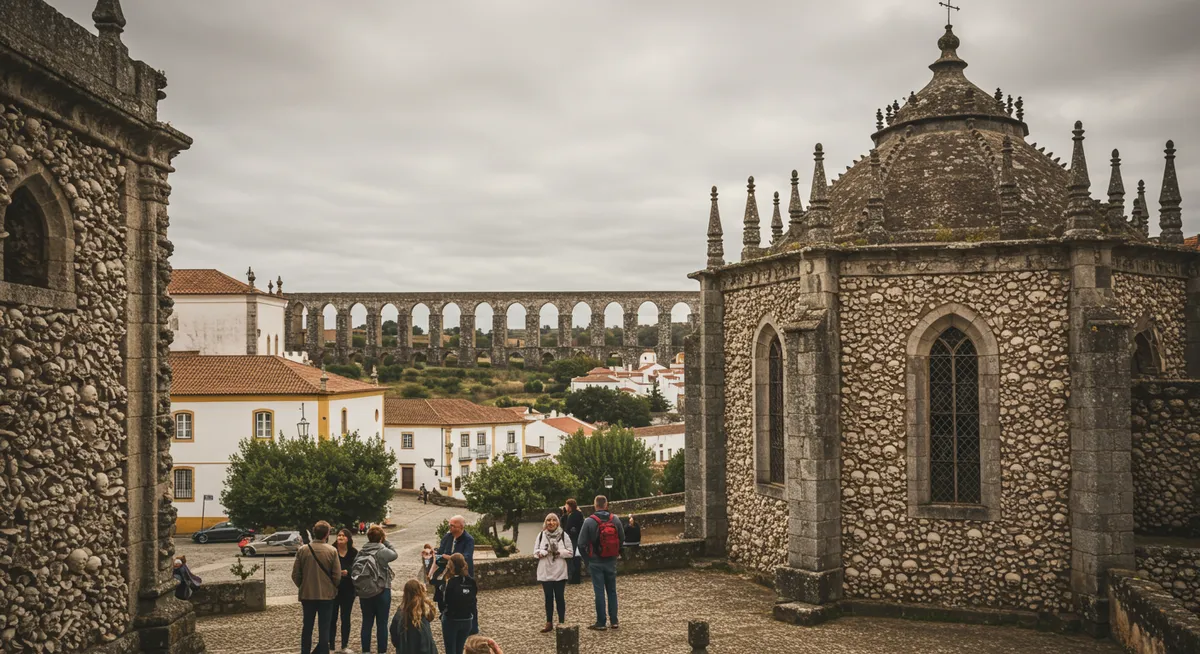
Best Historical Sites to Visit in Évora, Portugal
Want to plan a trip based on this article? Chat with our AI travel assistant!
Chat with AI AssistantCategory: best-historical-sites-to-visit-in-évora
About the Author
Travel Expert & Content Creator
Our travel experts have visited hundreds of destinations worldwide and are passionate about sharing authentic, practical travel advice. With years of experience in travel planning and content creation, we help travelers make informed decisions and create unforgettable journeys.
Editorial Standards: All articles are reviewed for accuracy and quality before publication. Learn more about our editorial process.
Written by Editor | Last updated: 8/25/2025
The Best Historical Sites to Visit in Évora, Portugal
Having personally traversed Évora's ancient cobblestone streets countless times, I can attest that this UNESCO World Heritage city in Portugal is a living museum. Its layered history, spanning from Roman times through the Moorish and medieval periods, offers a truly immersive experience. This guide will help you navigate the best historical sites to visit in Évora, ensuring you uncover its most significant treasures and understand why this city is a must-see for history buffs. From awe-inspiring ancient ruins to unique architectural marvels, Évora provides a profound journey into Portugal's past. For more comprehensive travel advice, be sure to explore the ToursPilot blog.
The Roman Temple of Évora (Templo de Diana)
Dominating Évora's historic core, the Roman Temple, often misattributed as the Temple of Diana, stands as a magnificent testament to the city's ancient past. Dating back to the 1st century AD, its Corinthian columns are remarkably preserved, offering a striking glimpse into Évora's Roman roots. I've often sat in the square, marveling at how these imposing ruins have withstood centuries, serving as a powerful focal point of the city. This site is undoubtedly one of the best historical sites to visit in Évora, embodying the grandeur of a bygone era. It's a perfect spot to begin your historical exploration, reflecting on the vast history surrounding you in this captivating city.
Évora Cathedral (Sé de Évora)
Rising majestically above the city, the Évora Cathedral, or Sé de Évora, is Portugal's largest medieval cathedral, showcasing a remarkable blend of Romanesque and Gothic architecture. Its imposing façade and intricate rose window immediately capture attention, while inside, the cloisters offer serene beauty and stunning views from the rooftop. My personal tip for visiting is to definitely ascend to the roof for panoramic vistas of the Évora skyline and surrounding Alentejo plains – it's an unforgettable perspective! This significant landmark is among the essential historical sites to visit in Évora, providing deep insights into the region's religious and architectural heritage, and an ideal spot for reflection.
The Chapel of Bones (Capela dos Ossos)
For a truly unique and somewhat macabre experience, the Chapel of Bones within the Royal Church of St. Francis is a must-see among the historical sites to visit in Évora. Constructed by Franciscan monks in the 16th century, its walls are lined with the skulls and bones of over 5,000 monks, serving as a stark reminder of life's transience. The inscription above the entrance, "Nós ossos que aqui estamos pelos vossos esperamos" ("We bones that are here, for yours await"), truly sets the contemplative tone. While it might seem eerie, it offers a profound historical and philosophical reflection. Be sure to read my detailed tips on how to visit the Chapel of Bones in Évora for the best experience.
University of Évora and the Historic Center
Évora's historic center, a UNESCO World Heritage site, is much more than just a collection of monuments; it's a living, breathing testament to centuries of urban development. At its heart lies the University of Évora, founded in 1559, one of the oldest universities in Portugal. Its beautiful courtyards and historic classrooms offer a glimpse into intellectual life throughout the ages. Wandering through the narrow, winding streets of the old town, you'll encounter a tapestry of architectural styles—Moorish arches, medieval alleys, and Renaissance facades. This entire area forms one of the most compelling historical sites to visit in Évora, inviting exploration at every turn.
Agua de Prata Aqueduct
The Agua de Prata Aqueduct, or Silver Water Aqueduct, is a remarkable feat of 16th-century engineering that still supplies water to Évora today. Commissioned by King John III and designed by Francisco de Arruda (who also worked on the Tower of Belém), this impressive structure stretches for miles, with some arches integrated seamlessly into the city's buildings. I find it fascinating how houses and shops are literally built into its massive stone arches within the city walls. Exploring sections of the aqueduct, especially where it merges with urban life, provides a tangible connection to Évora's rich past and its enduring practical infrastructure, making it one of the unique historical sites to visit in Évora.
Frequently Asked Questions
What is the most famous historical site in Évora?
How much time should I allocate for Évora's historical sites?
Is Évora's historic center walkable?
Évora is a city that truly rewards the curious traveler, inviting you to step back in time and uncover centuries of history embedded in its very fabric. From the majestic Roman Temple to the thought-provoking Chapel of Bones and the grand Évora Cathedral, the best historical sites to visit in Évora offer a profound and engaging journey through Portugal's past. Each monument tells a unique story, contributing to the city's UNESCO World Heritage status. As you plan your visit, remember to allow ample time to truly immerse yourself in these incredible historical layers. For more ideas on how to enjoy your trip, consider our guide on things to do in Évora or even unique day trips from Évora to extend your adventure.
Content Quality Assurance
This article has been thoroughly researched and fact-checked by our editorial team. We maintain high standards for accuracy and originality in all our content.